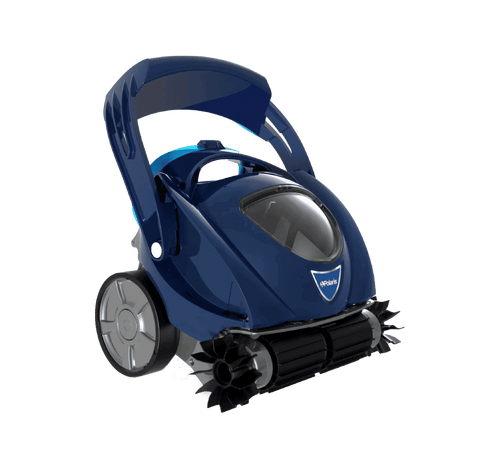There are some differences between inground and above ground swimming pools, but it’s just as important to make sure you close an above ground pool properly before winter sets in. In fact, there might even be a little more involved when closing down your above ground pool. The main thing is to make sure the proper chemicals are added to the water when putting it to sleep for a few months.
Below are a few tips you may want to heed when the time comes to close your pool.
Balancing the water
The water should be properly balanced before you begin to close the pool down. If it isn’t balanced it can result in damage to the vinyl lining and you could see mineral deposits in the pool when you open it up next spring. You simply need to balance the water the same way you’ve been doing throughout the summer.
pH level
The water’s pH level will tell you how basic or acidic the water is. The ideal pH level ranges from 7.2 to 7.8. A lower number level means the water is more acidic. When the number is higher it means the water is more basic. If the water is too acidic you’ll need to add the proper chemicals to lower it and if the water’s too basic it means you should raise the level of acidity to make sure it’s properly balanced. A proper pool testing kit will help you determine the correct levels for your pool.
Alkalinity
The alkalinity of the pool water represents the amount of alkaline substances in the water as well as the hydroxides, bicarbonates and carbonates and it’s linked strongly to the pH level. The ideal level of alkalinity should be between 80ppm and 120ppm. If the pH is too low it means you’ll need to add a chemical base to raise it. The most common base used is sodium bicarbonate. If there’s too much alkalinity in the water then acid should be added to it to bring the level down.
Calcium hardness
You could end up with calcium deposits in your pool and its plumbing system if the water’s too hard. If the water is considered to be too soft the water attempt to draw the needed calcium from inside the pool and this could cause damage. Pool water actually tries to balance itself, but things are a lot easier if you give it a helping hand. When the water’s too hard, it can be rectified by diluting it with the proper chemicals or by adding softer water to the pool. When the water’s considered too soft you’ll need to add some calcium chloride to it to achieve the proper balance.
Chlorine
Even though your pool will be hibernating for the winter it should still have a proper amount of chlorine added to it before closing it down. It’s recommended that you shock the water before closing it and add enough chlorine to bring the level to between 1-3 ppm.
Closing the above ground pool
Once the water has been balanced properly you can carry on with the next steps to closing the pool. You should make any debris at the bottom of the pool is vacuumed out and the sides of the pool have been brushed clean. This will result in a lot less work a few months down the road.
Winterizing pool kits
There are numerous kinds of winterizing swimming pool kits available and these should include all of the various chemicals needed such as chlorine and shock when closing your above ground pool. These chemicals will help to keep the water clean and clear and fight off scale buildup, rust, and algae growth during the winter. If you decide to purchase a winterizing kit be sure to read and follow the directions as carefully as possible.
Adding anti-freeze
When you’ve added all of the necessary chemicals and the water’s properly balanced you should allow the filter to run and for about a day to circulate everything. Once this is done the water level can be lowered to just below the skimmer and the water-return units. You can also blow out the plumbing system with a shop vac or something similar to make sure as much water as possible has been removed. When you’ve blown out the system you can add swimming pool anti freeze pool into the plumbing and plug up the return fittings to keep water out of the lines. Be sure to use swimming pool anti-freeze since it’s non toxic. Don’t use auto mobile anti-freeze as it could cause damage.
Final steps
The next step is to drain the pool equipment and pump by removing the drainage plugs. When everything is done you can then install the winter safety cover, which is always recommended for above ground pools. The cover will protect the pool from the harsh elements as well as dirt and debris.
Have questions about how to properly close your above ground pool? International Pool and Spa Centers specializes in winter closings that will last a harsh Canadian winter. We have locations across Ontario and our pool experts can help you with any questions you may have.


